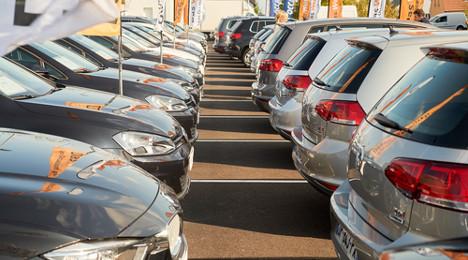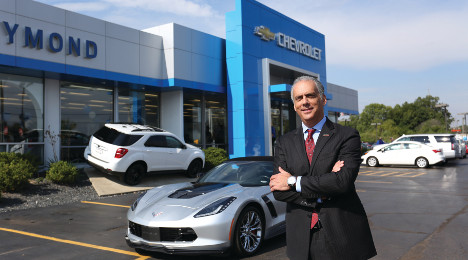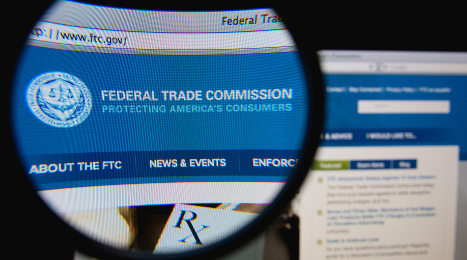A little more than a month after announcing plans to acquire a standalone used-car store chain in the Northeastern U.S., Penske Automotive Group has done the same in the U.K.
Penske announced Friday that it has signed an agreement to buy CarShop, a chain of five standalone used-car retail stores in the U.K.
This follows a move announced Dec. 1, when Penske said it had signed a deal to buy CarSense, a standalone used-car retailer whose no-haggle model focuses on late-model units. CarSense has five stores throughout the Pittsburgh and Philadelphia metro areas, including southern New Jersey.
As for Friday's deal in the U.K, CarShop has locations in Cardiff, Swindon, Northampton, Norwich and Doncaster. The company, which launched in 1999, also has a 15-acre vehicle preparation center in Leighton Buzzard that can recondition 45,000 cars a year.
Penske Automotive Group chairman Roger Penske said in a news release: “The acquisition of CarShop furthers our diversification strategy within the transportation services industry, and is complementary to our existing core auto retail business.
“Similar to the U.S. market, used-vehicle sales in the U.K. are nearly three times the size of new vehicle sales on an annual basis. The CarShop acquisition, combined with the pending acquisition of CarSense in the United States, strengthens our market position in our two largest markets (United States and United Kingdom) while providing scalable future growth opportunities,” Penske added.
The deal must meet certain conditions and is expected to close by end of quarter. The dealer group estimates CarShop will generate annualized revenues of approximately $340 million, with accretion at an estimated $0.07 to $0.09 per share annually.
AutoNation announced on Wednesday that it's begining the year by hosting a coast to coast all-day hiring event on Tuesday in 15 cities.
There are thousands of sales and service positions available at all stores and service centers, according to AutoNation.
Store management will be present at each city’s hiring event and offers will be extended to candidates on the spot.
All new hires are scheduled to start on Jan. 23. Additionally, new sales associates will be enrolled in the company's "Sales Ignition" course.
Sales Ignition, a paid training experience recently launched by AutoNation, provides new sales associates a platform to develop their selling skills.
Potential candidates are asked to register at www.AutoNationHIREMENOW.com.
Year-to-date certified pre-owned sales stood at 2.41 million units at the end of November, according to Autodata Corp., and this was up 3.6 percent and all but certain to break the 2015 sum of 2.55 million units sold.
That would extend the streak of best-ever years for CPO sales to six.
So what is driving this CPO momentum?
“From the CPO perspective, it really — being a car dealer for many years — gives the consumer the peace-of-mind and legitimizes the fact that that car has been, if it were out of spec or something needed to be addressed, it’s put back within factory specs for that year, that model, with that range of mileage on it,” said Mark Scarpelli, the 2017 chairman of the National Automobile Dealers Association.
Scarpelli serves as president of Raymond Chevrolet and Raymond Kia in Antioch, Ill. He is also the co-owner of Ray Chevrolet and Ray Chrysler-Jeep-Dodge-Ram in Fox Lake, Ill.
He talked with Auto Remarketing in December about, among other things, two of the top trends in the used-car retail space: CPO sales and the emergence of standalone used-car stores.
Commenting further on CPO, he said, “You’re looking at it from the manufacturer perspective and it gives people great peace-of-mind. And in many cases, it gives them additional warranty benefits and it’s a really thing to put people’s minds at ease, if you will.”
Scarpelli added: “And many of these cars that become CPO cars … have come out of short-term lease programs, factory program type cars. And that supply of cars continues as the market turns.
“It’s a great place for a consumer to get an awesome deal with an extension of warranty and peace-of-mind, because it’s a CPO car. Sometimes those cars come with finance programs and low interest rates,” he said. “It’s a great thing for a consumer.”
Perhaps another smart move by franchised dealers in the pre-owned space has been the launch of standalone used-car stores.
Penske Automotive Group announced in December that it had signed a deal to buy CarSense, a Northeast-based standalone used-car retailer whose no-haggle model focuses on late-model units.
Sonic Automotive and Asbury Automotive Group each have used-car standalones in EchoPark Automotive and Q auto, respectively. In October, AutoNation revealed plans to begin rolling out its own.
“It’s all about the fleet that’s out there and the cars that are coming (back into the market), whether trade-ins or lease programs,” Scarpelli said of the benefits to this model.
“There’s a supply of them obviously. And in our case, it’s brand-building, whether you’re an independent dealer or a large dealer group,” he said. “It builds loyalty and brand-building to some of those dealer groups that you had mentioned and it’s also an opportunity to hone and drive home certified pre-owned sales. It’s just another avenue to sell that automobile to the buying public.”
CarMax and two dealer groups have agreed to settle Federal Trade Commission charges that they touted how rigorously they inspect their used vehicles, yet the regulator claimed the dealers failed to adequately disclose that some of the vehicles were subject to unrepaired safety recalls.
The FTC indicated on Friday that the proposed consent orders will prohibit CarMax as well as Asbury Automotive Group and West-Herr Automotive Group from making unqualified inspection or safety-related claims about their used vehicles if any are subject to open, or unrepaired, safety recalls.
Also, following a public comment period, the FTC has approved final consent orders in similar cases against General Motors, Jim Koons Management, and Lithia Motors that were settled earlier this year. An Auto Remarketing report about that matter can be found here.
The FTC’s complaint against CarMax cites its claims about rigorous used-car inspections, including its “125-plus point inspection” and that its vehicles undergo, on average, “12 hours of renewing — sandwiched between two meticulous inspections.” The complaint also notes a TV commercial touting a team inspection and reconditioning, which included a message that appears for three seconds in tiny type at the bottom of the screen stating, “Some CarMax vehicles are subject to open safety recalls.”
Despite highlighting their inspections, the FTC alleged that CarMax failed to adequately disclose that some of the vehicles had open recalls. These recalls included defects that could cause serious injury, including the GM key ignition switch defect, as well as the Takata airbag defect.
Similarly, the FTC’s complaint against Asbury Automotive Group, which also does business as Coggin Automotive Group and Crown Automotive Group, alleged that the company made claims such as: “Every Coggin Certified used car or truck has undergone a 150 point bumper-to-bumper inspection by certified mechanics. We find and fix problems — from bulbs to brakes — before offering a vehicle for sale.”
However, as alleged, the FTC said Asbury advertised some certified used vehicles without adequately disclosing that some of the vehicles were subject to open recalls, including one that could cause fuel to leak and the engine to misfire or stall, and one that could cause a car to move in an unexpected or unintended direction.
The FTC’s complaint against West-Herr Automotive Group, the largest auto group in New York, cites claims about vehicles backed by the “West-Herr Guarantee” and touting a “rigorous multi-point inspection with our factory trained technicians.” However, the complaint alleged again that the company failed to properly disclose that some of the vehicles were subject to recalls for defects that could result in serious injury.
Under the proposed consent orders, CarMax, Asbury, and West-Herr are prohibited from claiming that their used vehicles are safe, have been repaired for safety issues, or have been subject to an inspection for safety-related issues, unless they are free of open recalls, or the companies clearly and conspicuously disclose that their vehicles may be subject to unrepaired recalls for safety issues and explain how consumers can determine whether a vehicle is subject to a recall for a safety issue that has not been repaired, and the claims are not otherwise misleading.
The proposed orders also would prohibit the dealers from misrepresenting whether there is or is not an open recall for safety issues for any used motor vehicle, whether they repair such vehicles, and any other material fact about the safety of the used vehicles they advertise for sale. The proposed orders also would require the companies to inform recent customers, by mail, that vehicles they bought as far back as July 1, 2013, may be subject to open recalls.
In a commission statement regarding the six auto recall advertising cases, the FTC noted that its orders “will help empower consumers to make more informed and safer purchasing decisions in a market that, absent a change in federal law, continues to include cars subject to open recalls.”
The FTC vote to issue the statement was 3-0.
The FTC vote to issue the administrative complaints against CarMax, Asbury Automotive Group, and West-Herr Automotive Group and to accept the consent agreements was 3-0.
The FTC will publish a description of each consent agreement package in the Federal Register shortly. The agreements will be subject to public comment for 30 days, beginning today and continuing through Jan. 17, after which the FTC will decide whether to make the proposed consent orders final.
Interested parties can submit comments electronically for CarMax, Asbury Automotive Group and West-Herr Automotive Group by following the instructions in the “Invitation To Comment” part of the “Supplementary Information” section.
The FTC vote approving the final consent orders against GM, Jim Koons Management and Lithia Motors, and letters to commenters was 3-0.
You can count the decision by Roger Penske and his team at Penske Automotive Group to acquire standalone used-car retailer CarSense as a wise one, says Autotrader senior analyst Michelle Krebs.
“It’s a really smart move, of course,” Krebs said during a phone interview Friday. “Roger doesn’t make any dumb moves.”
Penske Automotive announced Thursday that it had signed a deal to buy the Northeast-based standalone used-car retailer, whose no-haggle model focuses on late-model units.
The dealer group said the model — which currently includes five stores throughout the Pittsburgh and Philadelphia metro area — can be expanded elsewhere in the U.S., and Penske plans to use it to broaden the dealer group's used-car footprint.
It’s a particularly deft maneuver by Penske — which joins other public dealer groups in the standalone used-car store space — given some of the supply and demand factors that Krebs shared.
It’s also not the last time we’re likely to hear of a dealership group making this kind of move.
Sonic Automotive and Asbury Automotive Group each have used-car standalones in EchoPark Automotive and Q auto, respectively, while AutoNation has plans to roll out its own.
So why is launching standalone used-car stores a good idea, and what makes the used-car market so attractive?
For starters, used-car supply is only going to continue growing, particularly as off-lease volumes ramp up in coming years, Krebs said.
Meanwhile, consumer demand for used cars is going to be strong because of the “affordability issue” in the new-car market, she said.
In fact, affordability — or lack thereof — has been one of the biggest disruptors to the new-car market, she said.
Yes, urbanization, the buying habits of millennials and car/ride-sharing all have had some impact, and Krebs and her colleagues are keeping close watch on these trends. But they haven’t had the same kind of impact that affordability issues have.
Given the growth in U.S. population, Krebs said, the new-vehicle market should be stronger than it is.
There were about 210 million adults in the U.S. in 2000, a year where 17.4 million new vehicles were sold, according to Cox Automotive, which cited Automotive News and the U.S. Census
In 2015, there were 248 million U.S. adults and 17.5 million new-car sales.
Put differently, they said, it took 38 million more people to reach essentially the same sales total.
The company’s data set takes it a step further and shows that if new-car sales per capita in 2015 had been even with the level in 2000, there would have been 20.5 million new-car sales last year.
But that, of course, didn’t happen.
The new-car market, Cox Automotive emphasized, has an affordability issue.
According to its data set, 57 percent of non-vehicle owners say they don’t have a car because they can’t afford to buy or lease one.
Krebs points out that median income has not risen and the cost of living has “grown exponentially.”
In fact, nearly three-fourths (72 percent) claim their everyday expenses have increased.
Citing the U.S. Census, Cox Automotive indicates that median income in 2014 ($53,657) was only marginally higher than median income in 1990 ($52,623).
Krebs points out that incomes have gone up 21 percent since 1967, but over the same time span, there has been a 596-percent increase in the cost of goods.
Meanwhile, income has actually dropped 7 percent in the last 15 years, she said, with the cost of goods going up 37 percent.
Granted, Krebs added, the price of cars has not shown the same level of increase, but their growth has outpaced that of incomes.
And all of the above tends to impacts the affordability of a new car and tends to make the used car “more desirable,” Krebs said.
Add yet another public dealer group to the growing standalone used-car store movement.
Penske Automotive Group announced Thursday morning that it has signed a deal to buy CarSense, a Northeast-based standalone used-car retailer.
CarSense — whose no-haggle model focuses on late-model units — has five stores throughout the Pittsburgh and Philadelphia metro areas, including southern New Jersey. It was started in 1997.
Penske said the model can be expanded elsewhere in the U.S. and plans to use it to broaden the dealer group's used-car footprint.
Penske believes the purchase of CarSense will bring annual revenues of about $350 million; annual accretion is estimated at $0.07 to $0.09 per share annually.
The deal is subject to customary conditions and will likely close in the first quarter of next year.
“The acquisition of CarSense, a proven high-quality and trusted brand with attractive customer demographics and strong repeat business, continues to diversify our business and provides Penske Automotive Group with an opportunity to grow its customer base while capitalizing on the highly fragmented used automotive retail segment,” Penske Automotive Group chairman Roger Penske said in a news release.
Added Penske executive vice president Whit Ramonat added: “We believe the CarSense model is scalable to other markets across the United States and complementary to our existing core auto retail business. With the completion of this acquisition, we intend to expand our share of the growing used-vehicle marketplace.”
Chalk up dealerships changing hands as another industry component being impacted by the presidential election.
According to analysis from the Blue Sky Report released on Tuesday, dealership M&A activity declined by 7 percent year-over-year during the first nine months of 2016. Kerrigan Advisors, which publishes Blue Sky Report each quarter, explained that sellers are likely to push closings to 2017 in anticipation of potential tax benefits from the incoming Trump administration
Overall, the report mentioned premium pricing declined in the first nine months of the year, but buy/sell activity remained strong with a 32-percent increase in the number of multi-dealership groups selling in the first nine months of 2016.
Today’s is the auto industry's most comprehensive and authoritative quarterly report and analysis of dealership mergers and acquisition activity and franchise values. It includes analysis of the first nine months of 2016 – laying out the high, average and low blue sky multiples for each franchise in the luxury and non-luxury segments for the quarter – and offers a detailed view of public and private company dealership acquisition activity.
Key data and analysis from the report also includes:
• 172 dealership buy/sell transactions completed in the first nine months of 2016 versus 184 transactions in the first 9 months of 2015.
• Buy/sell activity declined slightly in the second and third quarter, resulting in a 7-percent decline year-to-date.
• Pace of acquisition activity is not likely to increase in balance of 2016.
• Transaction sizes are rising and multi-dealership groups are coming to market at an increasing pace.
• For the third quarter of 2016, Kerrigan Advisors’ average blue sky multiples remained relatively stable.
• While premium pricing of auto dealerships is on the decline, most buyers are willing to acquire dealerships within Kerrigan Advisors blue sky multiples.
• The auto retail markets made a dramatic shift to high margin trucks and SUVs, driven by low gas prices.
“Buy/sell activity remains strong but, with the expectation of a tax reduction from the Trump administration, fourth-quarter activity could decline as sellers hope for a more favorable tax rate on their sales proceeds in 2017,” said Erin Kerrigan, managing director of Kerrigan Advisors.
The report identified three key trends moving forward into 2017:
• Auto retail’s hedged business model sustains dealership profitability.
• Economies of scale and scope drive consolidation.
• Foreign interest in U.S. auto retail rises.
“A trend we are watching closely for 2017 is the entry of foreign investors into the market,” Kerrigan said. “Because international companies are attracted to the franchise protections afforded to U.S. auto dealerships and are seeking geographic diversification beyond their borders, we expect foreign investors to make their mark on 2017 with at least one or two completing sizable acquisitions.”
The Blue Sky Report is published four times a year and includes Kerrigan Advisor’s signature blue sky charts, multiples and analysis for each franchise in the luxury and non-luxury segments. The multiples are based on Kerrigan Advisors’ view of franchise values in the current buy/sell market and can be applied to adjusted pre-tax dealership earnings to estimate blue sky value. To download the report, click here.
Earlier this month, DAA Northwest celebrated 24 years and hosted its annual Anniversary Sale Fundraiser to help support four local Spokane charities.
The auction matched all funds, bringing the two-day event’s total to $123,000.
“Our thanks go out to all of our customers who contributed to the evening,” said auction president Bob McConkey. “These organizations depend on the support of this event. They are absolutely filled with gratitude and are in awe of the generosity of the dealer community.”
The annual anniversary dinner and auction event has raised more than $1.2 million for its local non-profit partners, according to DAA.
The celebration began with an 860-unit afternoon sale featuring consignment from Hyundai Finance, Kia Finance, Ford Motor Company, Ford Credit, Toyota Financial Services, Avis Budget Group, and Ally Auto Remarketing.
Costco Auto Program announced that in the first month of its General Motors Holiday sales event, 70 percent of purchases were for truck crossover and truck segments.
In addition to its members showing the most interest in the crossover and truck segments last month, Costco said October also included the highest registration day for a promotion.
More than 4,200 Costco members registered for the offer on Oct. 19.
“Just one month into the GM Holiday Sales Event, we saw a 44 percent increase in the number of vehicles sold compared to last year’s event,” said General Motors spokesperson, Jim Cain. “The event is off to a great start and we look forward to seeing what the coming weeks will bring.”
Chevrolet and GMC vehicles are most often requested.
The Chevrolet Silverado stands as the most popular vehicle among members, as it was during last year’s event. It represents 9.1 percent of all vehicle requests.
The second most requested vehicle is the GMC Acadia at 8.4 percent, followed by the GMC Sierra in third at 6.5 percent.
On Thursday, Group 1 Automotive announced the appointment of Charles Szews to its board of directors.
Szews joins eight other directors on the company’s newly expanded board.
"Charlie brings strong leadership, experience managing global businesses, and expertise in capital allocation and generating shareholder value," said Earl Hesterberg, Group 1 president and chief executive officer.
For close to two decades, Szews held a variety of senior management roles at Oshkosh Corp., formerly Oshkosh Truck Corp., a designer, manufacturer and marketer of a broad range of access equipment, such as commercial, emergency, military and specialty vehicles and vehicle bodies.
"During his tenure at Oshkosh, Charlie led strategy development and deployment, as well as 16 acquisitions. We look forward to the insight and experience he will add to our talented management team," said John Adams, Group 1 chairman.
At Oshkosh, Szews was named vice president and chief financial officer in 1996, executive vice president in 1997, president and chief operating officer in 2007 and chief executive officer in 2011. He retired as the chief executive officer in December 2015.
Currently, Szews is also a director and audit committee member of Rowan Companies, as well as director and member of the audit and finance committees of Commercial Metals Co.
From 2006 to 2013, Szews served as a director and audit committee member of Gardner Denver Inc.












